If you’re searching for a therapist, you already know it’s not as easy as picking a name from a list. Even for folks who handle high-stakes decisions all day, finding mental health support can feel unfamiliar and, honestly, a bit overwhelming. There’s no single formula to guarantee the “right” therapist, because what matters most will look a little different for each of us.
This guide is here to help untangle the process and cut through the noise. We’ll share what actually matters, like understanding your needs, credentials to look for, and how to judge connection and fit, so you can search for therapy with more clarity and confidence from the start.
Understanding Your Needs and Goals in Therapy
Before you start scanning directories or reading bios, take a moment to focus on why you’re considering therapy in the first place. Ask yourself: What am I hoping to change? Is it stress from work, struggles with perfectionism, or the feeling of carrying too much alone? Naming your priorities, even roughly, can shape your entire search.
Some of us arrive at therapy feeling outpaced by overwhelm, struggling with relationships, or wanting a sense of steadiness that’s been missing. Others just want to understand themselves better or break free from old patterns. Defining your goals doesn’t need to be perfect; just honest enough that you (and your future therapist) know where you want to start.
When therapists understand your context, whether that’s high-pressure tech, creative industries, or just managing multiple roles, they can calibrate the process to fit you. Your goals deserve to be acknowledged and respected, therapy is no one-size-fits-all undertaking.
Ultimately, therapy’s most lasting impact comes when your reasons for being there are heard. That clarity makes for a more meaningful, effective experience, right from the start.
Scope of Care: Who We Help and How We Work
At SF Therapy Group, our specialty is supporting adults who want to make sense of stress, anxiety, burnout, or the hidden weight of being the “high-functioning one.” We focus solely on individual work with adults, not couples, families, or children, because we believe in going deep and getting personal with each journey.
Our approach centers on your autonomy and intelligence. We don’t box you into rigid models, but instead listen, tailor, and adjust our methods to help you achieve sustainable progress in ways that make sense to your life. It’s all about choosing evidence-based strategies while ensuring the emotional safety to dig beneath the surface.
Other practices might offer services like crisis support, family sessions, or insurance-based care. Here, our commitment is to adults looking for a collaborative, thoughtful partnership where their experience is the map, and therapy is the vessel. Each session is goal-aligned, flexible, and geared toward real growth, not just symptom management. If you want a sense of our philosophy and process, the Our Philosophy page, as well as the description of individual therapy at SF Therapy Group, outlines how we work: smart, strategic, and truly customized every step of the way.
Essentially, if you’re ready for a therapy experience that meets you where you are and equips you for where you want to go, you’re in the right place.
Credentials, Specializations, and Experience to Look For
The alphabet soup after a therapist’s name isn’t just window dressing, it actually tells you a lot about who is qualified to help with what. There are several main types of licensed mental health professionals:
Psychologists (PhD, PsyD) are trained to provide talk therapy and often have advanced training in diagnosis and research, though at SF Therapy Group their focus is on providing strategic psychotherapy for adults.
Licensed Clinical Social Workers (LCSW) and Licensed Marriage and Family Therapists (LMFT) are highly trained in therapy but come from different backgrounds. LCSWs have extensive clinical field experience, while LMFTs have extra expertise in system dynamics and relationship patterns, even when doing one-on-one work. Both can offer individualized therapy for adults.
At SF Therapy Group, you’ll find a mix of seasoned clinicians, all of whom have advanced training and meet rigorous licensing standards. But beyond titles, it’s essential to consider their specialized experience, especially in areas like ADHD, substance use, or depression, if those are at the heart of your struggles. A therapist dedicated to ongoing professional development is much more likely to bring fresh perspectives and tested tools tailored to your needs. Want a look at the team and their unique backgrounds? Check out our therapists and see how diverse specializations can make a difference.
Bottom line: credentials get you in the door, but relevant experience and continuous learning keep you moving toward real change.
Practical Factors to Consider When Choosing a Therapist
Let’s be real, no matter how perfect a therapist sounds on paper, there are always nuts-and-bolts considerations that affect who you can actually see.
Think about your schedule and geography first. Are you looking for someone within driving distance of your office, or do you want the flexibility of virtual sessions? San Francisco traffic is no joke, so weigh out what you can realistically commit to week after week.
Some people want or need assessment reports or medication management. If so, know that not all therapists provide these services. At SF Therapy Group, the focus is solely on goal-driven, one-on-one therapy for adults. That means all your time and resources go straight into building insight and catalyzing progress, not filling out insurance paperwork or chasing referrals.
At the end of the day, the best therapist for you is someone whose logistics support your commitment to growth, making it easy, and sustainable, to keep showing up for yourself.

Factors That Don’t Matter as Much as You Think
It’s tempting to get caught up on things like a therapist’s age, gender, or social media presence. The truth? None of these predict whether you’ll feel safe to open up or make progress.
Shared values, respectful communication, and a therapist’s ability to engage with your individual experience matter far more. What will carry you forward in therapy is a foundation of trust, not demographic similarities or who’s trending online. Focus on connection and commitment to growth, and leave surface details in the background.
The Importance of Comfort, Trust, and Connection
More than any theory or technique, the heart of good therapy is the relationship you build with your therapist. Research backs this up, a meta-analysis published in the journal Psychotherapy found that the strength of the therapeutic alliance, feeling respected, understood, and genuinely listened to, is one of the strongest predictors of positive outcomes in therapy (Horvath, Del Re, Flückiger, & Symonds, 2011).
Pay attention to your gut, especially in the first few sessions. Do you leave feeling lighter, more hopeful, or at least curious? Is this someone you feel you can be honest with, without fear of judgment or pressure to fit a mold? Every session should leave some room to ask questions, voice doubts, or clarify expectations without worry that you’ll be brushed off or shamed.
The best therapist for you isn’t just a good listener, they’re someone who encourages your independence while offering wise structure and warmth. That combination gives you the freedom to explore patterns, challenge assumptions, and try out new ways of being. Over time, a strong alliance doesn’t just feel good; it’s the engine driving long-term, meaningful change in and out of session.
So, measure comfort and trust as seriously as any credential. When both are present, you’ve found a partner for the journey that actually matters most.
Red Flags to Watch Out For in Therapy
- Blurry Boundaries: If your therapist overshares, takes calls, or tries to be a “friend,” it’s a warning sign. The frame should feel secure and professional.
- Dismissal of Concerns: Feeling brushed off or told your feelings are “wrong”? A therapist should validate your experience and never minimize your struggles.
- Inconsistent Professionalism: Missed appointments without notice, chronic lateness, or disorganized communication are more than minor annoyances, they erode trust.
- Pushing Past Comfort: You should never be pressured to disclose or do anything that feels emotionally unsafe. Therapy moves at your pace, not theirs.
- Ethical Lapses: Any breach of confidentiality, or inappropriate behavior, is a red flag. Your safety and integrity come first, always.
How to Start Your Search for the Right Therapist
- Pin Down Your Goals and Preferences: Take time to outline what you want from therapy, stress relief, deeper self-understanding, support for a specific issue.
- Research Therapists’ Areas of Focus: Look for professionals with experience in your areas of concern. Reputable practices like SF Therapy Group provide bios, value statements, and details on session approach so you can evaluate fit.
- Check Availability and Logistics: Consider location, session format (in-person vs. virtual), and financial policies. Ask about current openings, sometimes slots fill up fast, so flexibility can help you get started sooner.
- Book a Consultation: A brief phone or video meeting is a chance to ask practical questions, about style, philosophy, experience with issues like yours, and to get a feel for comfort and professionalism.
- Prepare a Few Key Questions: Consider asking, “How do you approach therapy with people like me?” or “What does our partnership usually look like?” Trust your gut as much as their answers.
- Reflect Afterward: Notice your instincts. Do you feel heard? Interested? At ease? Finding the perfect therapist is rare, focus on whether you can see yourself working with this person to grow.
Above all, your search is about discovering a capable, collaborative partner, not a flawless magician.
What to Expect in Your First Session
The first meeting is all about testing the fit, for both of you. Expect your therapist to do a lot of listening, but also to ask gentle questions about your background, what you’re hoping for, and how life looks for you right now.
You may talk about what’s bringing you in, previous experiences with therapy, or specific goals you have in mind. Don’t worry if you don’t have it all figured out; your therapist is there to help you put words to it.
The session isn’t a one-way interview, feel free to ask about their approach, what a typical session involves, or how they set goals with clients. The right therapist will be happy to explain their process, answer questions, and clarify boundaries or confidentiality policies so you feel safe and respected.
By the end, you should have a sense of whether you’re comfortable enough to continue. Good therapists provide feedback on what working together might look like while always respecting your pace. It’s not about hard pitches or instant answers; it’s about exploring if the relationship feels supportive, collaborative, and right for you.
Conclusion
Finding the right therapist can feel complex, but focusing on what truly matters, clear goals, solid credentials, practical logistics, and a sense of trust, makes the process far more manageable. Your experience of feeling heard, respected, and empowered is the real indicator of a good match. Take your time, trust your instincts, and remember: therapy’s most profound results start with a simple step toward genuine, collaborative support.
FAQs
How do I know if a therapist is properly licensed and qualified?
A qualified therapist in California must hold a current license through a state regulatory board such as the Board of Psychology or the Board of Behavioral Sciences. You can always ask for a therapist’s license number, ethical, transparent professionals will provide it without hesitation. You can then verify it online through your state’s official verification portal to confirm active status, education, and any disciplinary history.
Beyond formal credentials, it’s worth asking how your therapist stays current in their field. Many strong clinicians pursue advanced training in specific modalities, attend professional workshops, and receive ongoing supervision to refine their approach. These signs of active engagement in their craft often say more about their commitment to quality care than degrees alone.
Is virtual therapy as effective as in-person sessions?
For most adults, yes, research consistently shows that virtual therapy can be just as effective as in-person care when the connection feels strong and communication is clear. A large meta-analysis published in World Psychiatry found that app-supported and online psychotherapy produced comparable results to traditional face-to-face therapy across multiple mental health conditions (Linardon, Cuijpers, Carlbring, Messer, & Fuller-Tyszkiewicz, 2019). The key is less about the medium and more about the relationship you build.
Online therapy offers flexibility for busy professionals, frequent travelers, or those who prefer privacy from home. Many clients find that being in a comfortable, familiar environment actually helps them open up more easily. Still, if you ever want to meet face-to-face, some practices, including SF Therapy Group, offer both options, so you can choose the format that best supports your consistency and comfort over time.
What should I do if the therapist I want has a long waitlist?
It’s common for experienced therapists to have waitlists, especially in specialized practices. If this happens, don’t be discouraged, there are constructive steps you can take.
Ask whether the therapist offers a short-term waitlist consultation or can refer you to another clinician within their group who works with similar approaches and values. Many clients start with another team member and later transition seamlessly if desired. You can also use the time to reflect on your goals, read about different therapy styles, or gather questions to bring to your first session. Starting with someone aligned in philosophy, even if it’s not your initial pick, can still set a meaningful foundation for growth.
Do I have to stick with the first therapist I meet?
Not at all. Therapy works best when the relationship feels genuinely collaborative, and it’s completely normal to explore a few options before finding the right fit.
The first meeting is about testing that fit, seeing if their communication style, energy, and expertise align with your needs. A good therapist will never pressure you to commit. They’ll understand the importance of your comfort and even encourage you to make an informed choice. Think of these early sessions as mutual exploration: you’re assessing whether this feels like a partnership where you can safely do the work that matters most.
What questions should I ask during a first consultation?
A short consultation or intake call is your opportunity to get a sense of how a therapist thinks and works. You might ask:
- “How do you typically approach therapy with people who have challenges like mine?”
- “What can I expect from the first few sessions?”
- “How do you set goals or measure progress together?”
- “What’s your availability and preferred format (in-person or online)?”
- Also pay attention to what’s unspoken, how the conversation feels. Do you sense curiosity, calm, and respect? Do their answers feel grounded and thoughtful? Those cues often tell you as much as their words.
The right therapist will be glad you’re asking; it shows you’re ready to engage with intention and care.
References
- Horvath, A. O., Del Re, A. C., Flückiger, C., & Symonds, D. (2011). Alliance in individual psychotherapy. Psychotherapy, 48(1), 9–16.
- Linardon, J., Cuijpers, P., Carlbring, P., Messer, M., & Fuller-Tyszkiewicz, M. (2019). The efficacy of app-supported smartphone interventions for mental health problems: A meta-analysis of randomized controlled trials. World Psychiatry, 18(3), 325–336.





